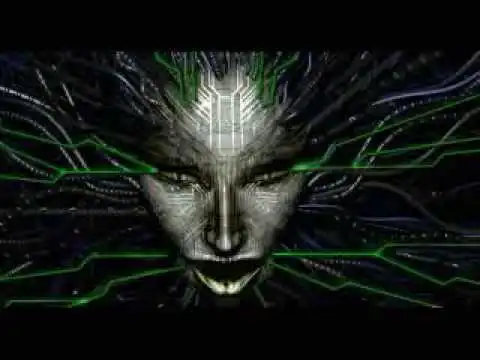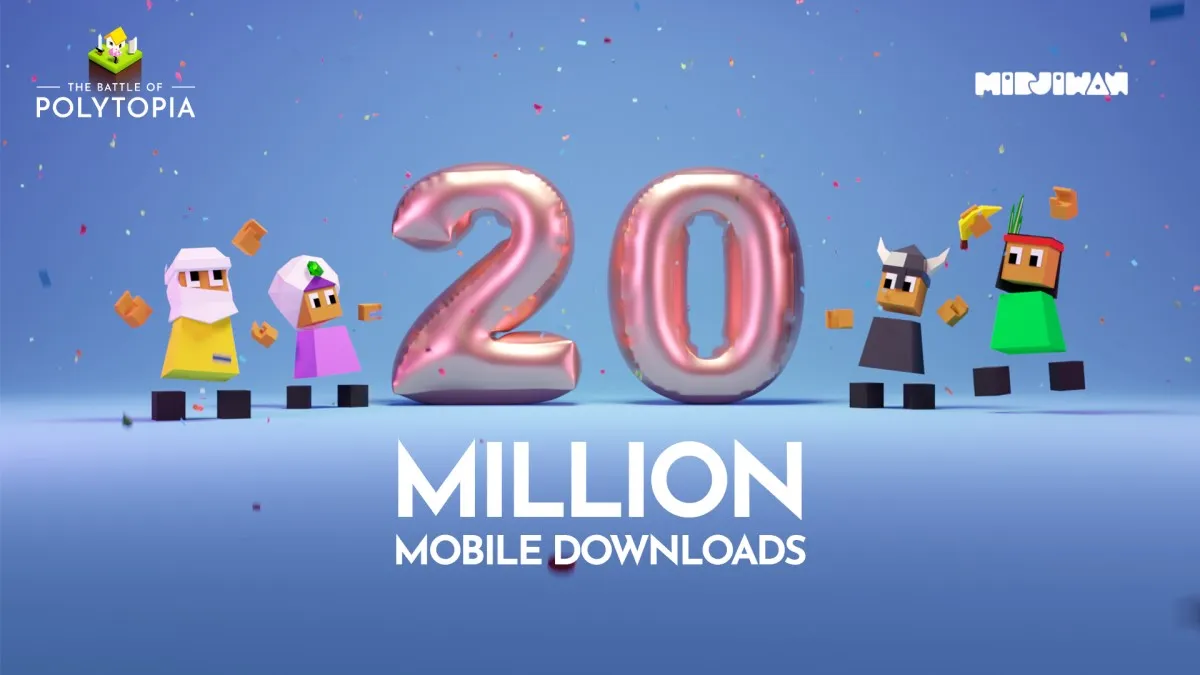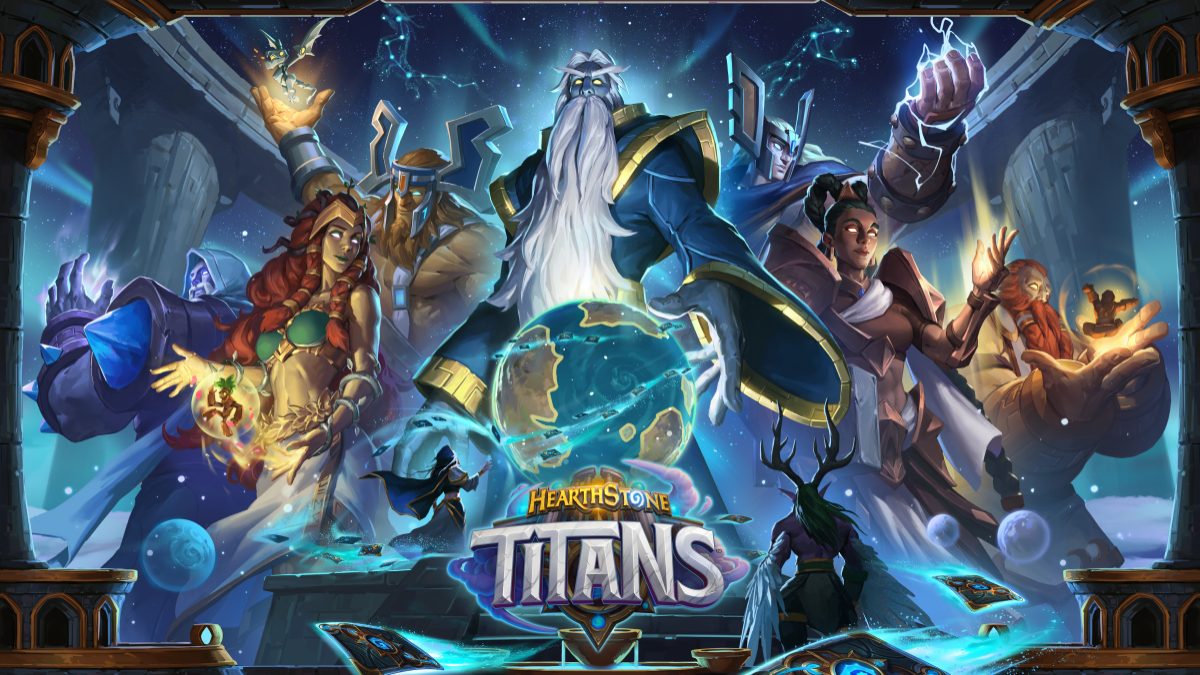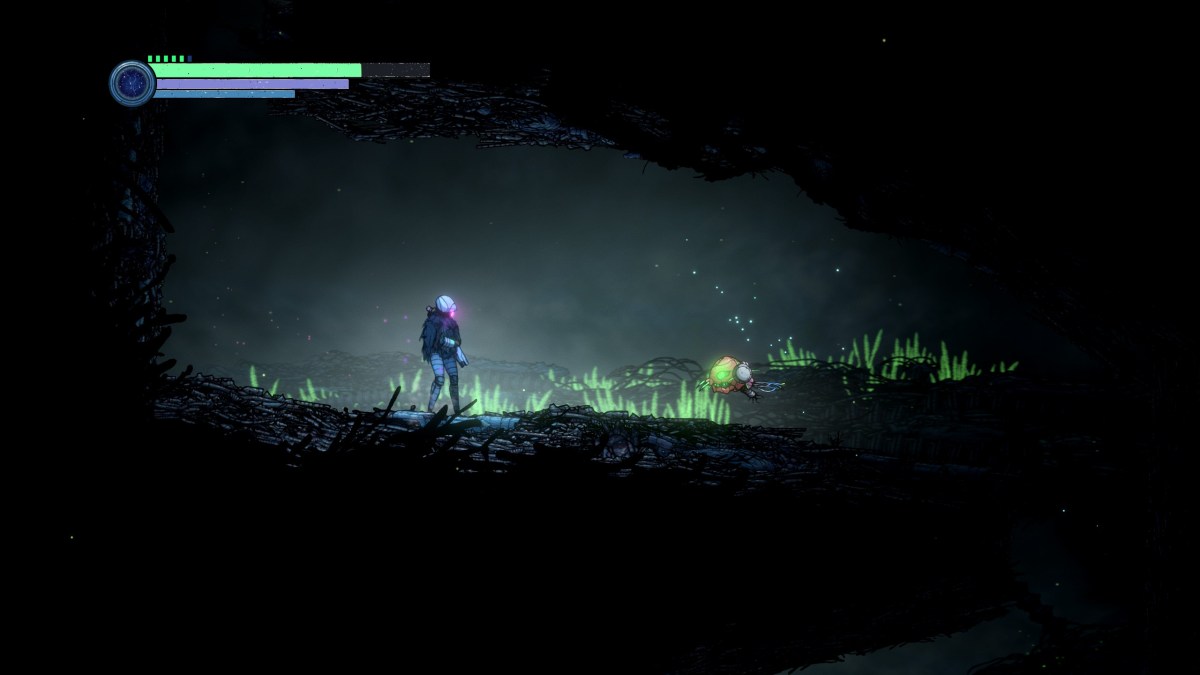Peter: I’m curious at what point in the design you added things like respawning enemies and weapon degradation, which I think are the things that surprise people if they didn’t play it at the time?
Dorian: Respawning was in fairly early on, right Jon?
Jon: From the beginning I think.
Dorian: In fact I think we had to do a pass late in the game to tone it down a little bit. As bad as it seems in some places, we had areas where it was like Times Square during rush hour. [Laughter] The mutants were wandering around everywhere, you never even got a five second respite.
Jon: Weapon degradation I think is the most hated feature in the game, and fairly rightly so. It’s another thing that contributes to that resource hunger, so that was why we put it in there. But I think it was just a step over the line in terms of … it felt a bit too artificial.
I mean there’s a fictional problem with it. It’s the 25th Century or whatever, why can’t we make a gun that fires more than three times without breaking? But there’s also the problem that it’s a bridge too far in terms of annoyance and the player feeling we were screwing with them in every way we possibly could.
Dorian: [Laughs] Not that there’s anything wrong with that, though.
Jon: Well … I think the fact that people made mods to turn it off.
Dorian: My recollection from feedback at the time really was that the overwhelming dissatisfaction with that system was purely from a realism point of view. I don’t remember people saying “oh it’s not fair,” I remember people saying …
Jon: It doesn’t make sense.
Dorian: … “It broke my suspension of disbelief.”
Jon: And also the whole notion that you can’t use a weapon if you don’t have enough skill. That was sort of bizarre. It makes sense for an alien crystal, but it’s hard to imagine someone who can’t pick up a machine gun.
Peter: Figuring out that the bullets come out of that end, so point it towards the enemy. [Laughs]
Jon: Yeah. Modern games have figured that out a lot better with aiming reticules that get narrower or wider depending on the skill level.
I think gun jamming is a kind of classic horror thing. The notion of trying to desperately unjam your gun while monsters are coming towards you. And I think Gears of War for example has a better system, you know, the reload mini-game. You can be fumbling around trying to reload while the monsters are swarming towards you. That’s a much more fun system I think.
Peter: Speaking of mods that people came up with to remove stuff, I don’t know Tim if you used the one to remove the spiders? [Laughter] There is one out there for just that purpose.
Tim: I do want to know who was responsible for adding the spiders to the game and whether there’s some sort of law I’m unaware of that means all scary games have to have giant spiders in them?
Jon: There’s a secret contract if you’re a game developer. [Laughter] You get told fairly early on that you do have to put giant spiders in, if you’re making something that’s purporting to be scary.
Peter: Some sort of Spiders Union who get on you if you don’t.
Tim: I’m going to have to read you something. “The no spiders patch doesn’t just remove the spiders. That wouldn’t have been good enough. The patch makes the spiders invisible, inaudible, immobile, gives them one hit point, renders them incapable of doing damage, sets them as friendly to you so other monsters kill them, and kills them the second they spawn.” [Laughter]
Peter: How do you feel about that?
Jon: I’d rather see a patch that turns them into fluffy little bunnies.
Dorian: That are just as dangerous.
Jon: No no no, friendly bunnies.
Peter: Maybe combined with the service bots? So they just hop towards you and then explode. All while saying that they’re trying to help you.
Jon: I don’t remember where the spiders came from. I do remember why there are crazy monkeys in the game though. The only reason crazy monkeys are in the game is because when we were doing the mo-cap, we had some spare time at the end. And Ken [Levine] decided we should mo-cap some monkeys. Or people pretending to monkeys.
Peter: Well hang on, was it monkeys or people pretending to be monkeys? Because this is critical to my mental image of events. [Laughter]
Jon: I’ll let you on to our secret, we didn’t mo-cap real monkeys. Our budget didn’t extend to that.
Peter: Who got the lucky role of pretending?
Jon: You know, I don’t know. I was going to say maybe it was Ken, but I don’t think it was. We had one guy who did all the mo-cap.
Peter: “And today, what we want you to do is pretend to be a psychic monkey.”
Jon: He was a very accommodating motion capture artist. [Laughter]
Tim: So the monkeys were added to the game because you had free time with mo-cap? I just want to be clear on this.
Jon: I’m pretty sure that’s correct. I don’t know that Ken had a plan for them, but I think he just wanted to put monkeys in the game and we got to the end of the mo-cap session … I think Jonathan somebody, not me, was the mo-cap guy. He did a pretty good job I think.
Peter: No, it works really well. They’re my personal horror creature in there.
Jon: Monkeys are pretty nasty little creatures.
Peter: I also like that quite a few of the voice logs in the game make reference to the question of “why the hell are we researching on all of these monkeys as part of this voyage?” [Laughter]
Jon: “Why did we bring a bunch of monkeys with us to the other end of the galaxy?”
Peter: Speaking of the voice logs, Tim reminded me earlier that they were also in the original System Shock so that’s probably why you went with those. But it kind of amazes me that method of narrative framing, of storytelling, is still used a whole lot by videogames. The found audio log thing.
Jon: Yeah. I’m pretty sure the original System Shock was the first game that did that. Do you think that’s right, Dorian?
Dorian: I do think that’s right.
Jon: Yeah, I don’t think we can take a lot of credit for that. We just followed along with that because it’s a great storytelling tool.
Peter: Also the scavenging. This goes back to the resource scarcity and stuff, but the scavenging for items works really well within the level setting. When I was playing BioShock Infinite, great game though that is, it’s sort of weird to be rifling through trash cans looking for hot dogs.
Jon: There’s a definite legacy of things in the Shock games which I think is good, because at least the brand tells you something about what you’re going to get. Some of them are getting a little strained because the games themselves are changing in what they’re trying to accomplish.
Dorian: I think they’re strained because the environments are changing from dead environments to living ones. It’s easier to imagine that when everything is going to hell in your spaceship or underwater city that people are just stashing things anywhere they can. I was a little more taken aback in BioShock Infinite because the world was still alive.
Jon: You’re this guy going through all these trashcans while people are walking past you, and you’re pulling a banana out.
Peter: Precisely, precisely that.
Dorian: The notion of the scavenger feels more natural if you’re really the only sane thing left alive in a post-disaster environment.







Published: Aug 22, 2013 10:21 pm